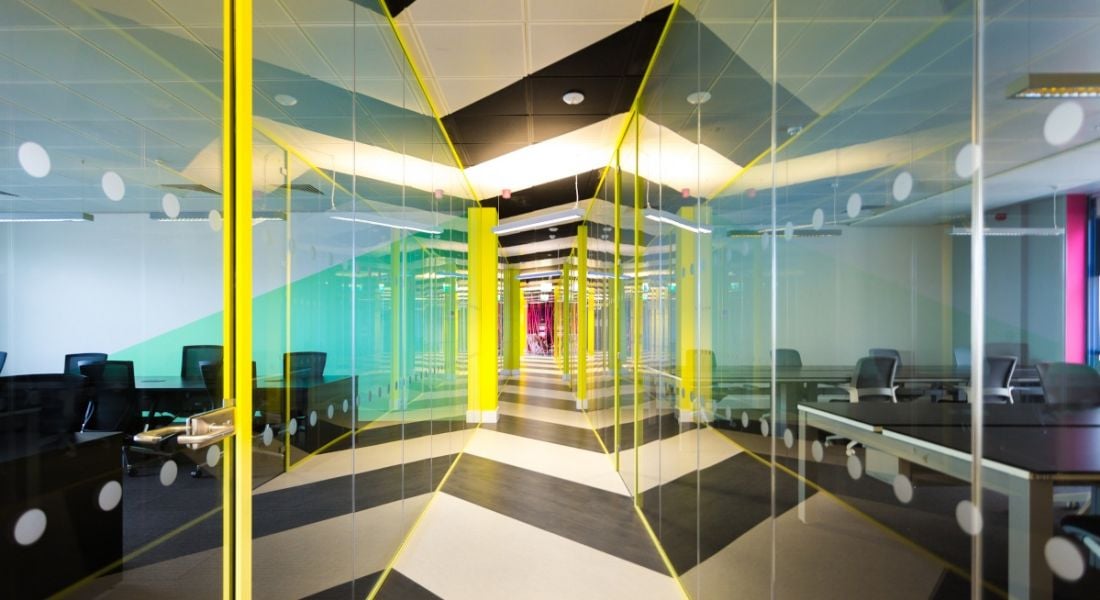Huckletree’s Andrew Lynch shares his thoughts on what companies need to consider when moving into the world of hybrid working.
The future of work seems to have become synonymous with hybrid working. The pandemic inadvertently launched a worldwide remote working experiment, which has brought the topic of flexible, remote and hybrid working to the forefront.
Now, as offices start to reopen, many companies are begging for guidance around how they can get back to normal.
But the call for more flexibility is strong and many employers will need to seriously consider a hybrid working model going forward if they want to remain competitive when it comes to talent.
Several companies have already rolled out their various hybrid working strategies, including Salesforce, Revolut, Dropbox and Siemens, all of which have talked about going virtual first, turning to mobile working or offering some form of permanent flexibility for their staff.
But a lot of thought and consideration has to go into a hybrid working strategy. For a start, companies looking to do this on a more permanent basis for the first time in a post-pandemic world will need to evaluate the challenges they will face.
Andrew Lynch is the COO and co-founder of Huckletree, which offers flexible workspaces to companies. He said managing teams that are working both remotely and in an office can raise challenges for senior leadership.
“As a manager, it’s really important to think about the meetings or activities where face-to-face interaction is crucial. For example, if you run your company ‘all hands’ meeting each week on a Wednesday morning, then ideally Wednesday would be a day where people come into the office to gather together in person,” he said.
“If people cannot travel on that day, think of ensuring that the space you are in has adequate technology so that they feel part of the conversation. You don’t want to create any disconnect between those working from home and those who are in the office, so remember to include those employees who are joining via Zoom. Employee inclusion is more important than ever and everyone’s voice should be heard.”
‘Working from home is no longer viewed as a luxury reserved for top performing employees’
– ANDREW LYNCH
The pandemic may have started the remote revolution that no one wanted, but because it was – and still is – a pandemic, it has arguably created two misconceptions. Firstly, that the last 18 months was a true and fair picture of what remote working is really like, and secondly, that we have all become so used to working remotely that we don’t need to formalise any new strategies.
But working outside of a pandemic will be different and transitioning back to the office or creating a new blended working experience will not be straightforward. So what should employers do?
“Having a central hub where your teams can come together on a regular basis is essential for cohesion, wellbeing and company culture,” said Lynch.
“Agreeing on a schedule or rota with clear expectations around when people are expected to be in the workspace is important. Invest in a workspace that has good Wi-Fi and technology for hybrid meetings.”
He also spoke about how important it is for managers to have empathy with people’s individual circumstances as they transition back to the workplace. Managers have always had a duty of care to their employees and that will continue no matter what type of working model they use.
But now more than ever, remote, flexible and hybrid working needs to be a conversation between employers and employees and should not be considered a privilege for the lucky few, especially with legislation around remote working on the cards for Ireland.
Lynch said transparency is essential when it comes to creating a hybrid working policy and that it must be clear to avoid any confusion around what is expected of employees.
“During the pandemic, employees showed that they can still be productive when working from home on a balanced basis, which has established an element of trust between both sides. Working from home is no longer viewed as a luxury reserved for top performing employees.”
Lynch said based on what he’s seen from companies that use Huckletree offices, hybrid policies can vary depending on the needs of employees.
‘Hybrid working is another way for companies to convey trust in their employees’
– ANDREW LYNCH
“The number of days or hours that someone spends working away from the central workspace or hub really depends on their role and their individual style of working,” he said.
“For example, we have noticed companies in hyper growth mode with customer-facing sales teams coming back to the workspace a lot sooner than others. It’s hard to get the same buzz and energy around driving sales through various Zoom screens when all team members are working from home!”
As restrictions continue to ease in Ireland, a roadmap to reopening is due to be announced by the Government next week. This is said to include guidelines around the return to workplaces.
However, a permanent office space big enough to fit every member of staff may no longer be necessary for many companies in the new world of work and Lynch has already seen this trend taking hold.
“Companies are looking for flexibility and steering clear of long leases and commitment periods. People are looking for work environments that allow them to be creative, to collaborate and brainstorm in person,” he said.
“Hybrid working for us is just another way for companies to convey trust in their employees, and for them to be mindful of the various life dynamics their team face every day; whether that’s because you care for an elderly loved one, you’re a single parent struggling with childcare, or simply that you’re more productive in the evening versus early morning.
“We see this year companies shift from a time-based system of management to a goal or outcome-based one.”




